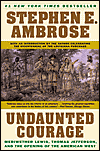Macondo

Image courtesy of
Banana Label Explorer
Banana Label Explorer
Mientras leo el artículo y como mi cotidiano sándwich durante un ordinario día de trabajo, el sonoro vocablo me transporta a gratos recuerdos cuando era un joven liceísta que alegremente consolidaba su afición por la literatura latinoamericana. Desde niño me gustaron los libros y claramente me acuerdo pidiéndole permiso a mis padres para leer un grueso y apolillado tratado acerca de Rusia que languidecía en un viejo armario; Apenas cursaba el cuarto grado y a mitad del año escolar ya había devorado los textos de Geografía e Historia y requería de nuevo material absorbente. Afortunadamente, mi voraz apetito textual fue apaciguado cuando nos mudamos a Caracas y descubrí que por unos pocos bolívares podía comprar semanalmente, un tomo de una colección de grandes obras de literatura de edición popular. Cada martes visitaba a la librería para asaltar el ejemplar de la semana. Los de color verde siempre me interesaban ya que eran tratados de ciencias como El Origen de la Especies. Los de color azul eran más difíciles de gustar pues eran guiones de teatro o libros de poesías como El Cantar de Mió Cid. Pero mi gran placer eran los más comunes que eran anaranjados, el color de las grandes obras de literatura donde predominaban las joyas de la literatura clásica española coronada con el Don Quijote de la Mancha. Aun hoy en día, conozco poco de los grandes de la literatura inglesa por el simple hecho de que cuando leo por placer casi siempre leo algo en español, preferiblemente de un autor latinoamericano.
Sin duda, mi predilección por la literatura latinoamericana fue moldeada aquel tercer año del Ciclo Básico Común en el Liceo Lino de Clemente. Todo cambio aquel día en que fortuitamente nuestra profesora de castellano escogió a Cien Años de Soledad para nuestro análisis de literatura. Aparentaba ser una tarea fácil al leer el divertido texto pero hasta la misma profesora parecía confusa; El libro de Gabriel García Márquez no se ajustaba al esquema requerido para completar el reporte: ¿Cual de los Buendía era el personaje principal? ¿Como describir el leitmotiv del libro? ¿Como catalogar el lenguaje de Gabriel García Márquez cuando “Realismo Mágico” seria una denominación inventada años después?
Y mientras me iniciaba en mi romance con la literatura latinoamericana, a las puertas de mi Liceo, jóvenes impacientes trocaban piedras por bombas lacrimógenas con la Policía Metropolitana de Caracas en divertidos disturbios estudiantiles. Que fascinante ser llamado “neófito” por un policía no mucho mayor que uno pero revestido de una indumentaria que lo uniformaba como un ser de otro planeta. Que irreal cuando un amigo advertía del inminente peligro cuando la policía era reemplazada por la Guardia Nacional lo cual anunciaba que las cosas iban en serio y era hora de irse a casa. Que embriagante el ponerse de pie en medio de una clase y seguir el llamado de un instigador que llamaba al “¡Paro! ¡Paro! ¡Paro!” y salir a la calle con una confusa concepción de supuestas injusticias pero una clara oportunidad de sumarse al “bochinche.” Y que extravagante regresar a una supuesta normalidad y completar la tarea de leer Cien Años de Soledad.
¡Macondo nunca podrá ser un lugar porque cuando uno es latinoamericano, Macondo se ha vivido!
Dead-On History
I just finished reading
 1776.
My mother-in-law gave it to me
for my birthday; she knows I prefer a good piece of history over literary fiction. I started liking history later in life, like most kids I was not a big
fan of history. Let's face it, history --as presented in your typical textbook-- is a dry and boring affair to be memorized ad
nauseum for the sake of stale dates, names and places. But there are some skilled writers that by the power of their words bring history alive.
They do that by portraying historical events through the words of the people involved, basing their narratives on personal correspondence and
journals of not just the protagonists but also the common folk who were witnesses to the historical events. It is a technique that renders statues into real-life humans
with all their foibles and tribulations; strengths and accomplishments.
1776.
My mother-in-law gave it to me
for my birthday; she knows I prefer a good piece of history over literary fiction. I started liking history later in life, like most kids I was not a big
fan of history. Let's face it, history --as presented in your typical textbook-- is a dry and boring affair to be memorized ad
nauseum for the sake of stale dates, names and places. But there are some skilled writers that by the power of their words bring history alive.
They do that by portraying historical events through the words of the people involved, basing their narratives on personal correspondence and
journals of not just the protagonists but also the common folk who were witnesses to the historical events. It is a technique that renders statues into real-life humans
with all their foibles and tribulations; strengths and accomplishments.
David McCullough, the writer of 1776, is not just a masterful writer and historian; he is also a great story-teller. Through his writing, I savored all the raw details of the first success of the Continental Army at the battle for Boston and the subsequent reversal of fortune at New York. The famous painting of George Washington Crossing the Delaware became a more vivid event than even that beautiful painting portrays. McCullough's masterpiece paints a great story of the people whose valor was essential to the founding of the United States of America: George Washington, of course, but also lesser known patriots like Nathaniel Greene and Henry Knox. I now know that 1776 was a crucial year for the birth of this great nation not only because of the Declaration of Independence; Without the sacrifice and determination of a courageous few, that revered document could have become a dusty, obscure entry in some British Colonial archive.
One of my favorite books on American history is Evan S. Connell's Son of the Morning Star: Custer and the Little Bighorn.
In this book, Connell who is quite the raconteur, depicts one of the most regrettable
chapters of the infamous Indian Wars at its climatic episode. He paints a sinister picture of The Battle of the Big Horn in all its brutal glory. He also tries
to unmask Custer's mystique and partially succeeds. What he really accomplishes is
in portraying both warring parties, Custer and his Seventh Calvary, the Sioux
and Cheyenne Indians, as very real humans beings caught up in the inescapable circumstances that define their destinies.
Son of the Morning Star: Custer and the Little Bighorn.
In this book, Connell who is quite the raconteur, depicts one of the most regrettable
chapters of the infamous Indian Wars at its climatic episode. He paints a sinister picture of The Battle of the Big Horn in all its brutal glory. He also tries
to unmask Custer's mystique and partially succeeds. What he really accomplishes is
in portraying both warring parties, Custer and his Seventh Calvary, the Sioux
and Cheyenne Indians, as very real humans beings caught up in the inescapable circumstances that define their destinies.
I recently learned that Connell's book was later adapted into a TV mini-series. I never saw it but I venture to say that this is one of the many cases were you should "...read the book!"
There is one book about American history that remains my absolute favorite: Stephen Ambrose's Undaunted Courage: Meriwether Lewis, Thomas Jefferson and the Opening of the American West
The phrase "Lewis & Clark" has always conjured images of great adventure to me. It is difficult to understand the scope of their
endeavor and their achievement until you read from their journals and realize the remarkable enterprise upon which
they embarked: To cross the uncharted North-American continent and claim it as part of a fledging new nation.
Undaunted Courage: Meriwether Lewis, Thomas Jefferson and the Opening of the American West
The phrase "Lewis & Clark" has always conjured images of great adventure to me. It is difficult to understand the scope of their
endeavor and their achievement until you read from their journals and realize the remarkable enterprise upon which
they embarked: To cross the uncharted North-American continent and claim it as part of a fledging new nation.
Ambrose's book describes all the adventure of Lewis & Clark expedition in exciting, exquisite detail. But he also acknowledges the man behind the scene which makes it possible: Thomas Jefferson. If George Washington's perseverance and "brilliant stroke" was responsible for a crucial moment in the birth of the nation, it is Thomas Jefferson's vision that is responsible for transforming "...thirteen united States of America" into what would become this great nation.
As with all my favorite history books, Ambrose does not disappoint. He too explores the humanity of the protagonists, delving into the controversial and tragic circumstances of Meriwether Lewis' death.
Several movies have been made about Lewis & Clark including an IMAX version from National Geographic. Although not based on Ambrose's book, there is one TV mini-series that should be watched regardless of whether you read this book or any other account of Lewis & Clark's expedition. It was created by one of my favorite film-makers, Ken Burns, whose Lewis & Clark, The Journey of the Corps of Discovery is still being aired on PBS
David McCullough, the writer of 1776, is not just a masterful writer and historian; he is also a great story-teller. Through his writing, I savored all the raw details of the first success of the Continental Army at the battle for Boston and the subsequent reversal of fortune at New York. The famous painting of George Washington Crossing the Delaware became a more vivid event than even that beautiful painting portrays. McCullough's masterpiece paints a great story of the people whose valor was essential to the founding of the United States of America: George Washington, of course, but also lesser known patriots like Nathaniel Greene and Henry Knox. I now know that 1776 was a crucial year for the birth of this great nation not only because of the Declaration of Independence; Without the sacrifice and determination of a courageous few, that revered document could have become a dusty, obscure entry in some British Colonial archive.
One of my favorite books on American history is Evan S. Connell's
I recently learned that Connell's book was later adapted into a TV mini-series. I never saw it but I venture to say that this is one of the many cases were you should "...read the book!"
There is one book about American history that remains my absolute favorite: Stephen Ambrose's
Ambrose's book describes all the adventure of Lewis & Clark expedition in exciting, exquisite detail. But he also acknowledges the man behind the scene which makes it possible: Thomas Jefferson. If George Washington's perseverance and "brilliant stroke" was responsible for a crucial moment in the birth of the nation, it is Thomas Jefferson's vision that is responsible for transforming "...thirteen united States of America" into what would become this great nation.
As with all my favorite history books, Ambrose does not disappoint. He too explores the humanity of the protagonists, delving into the controversial and tragic circumstances of Meriwether Lewis' death.
Several movies have been made about Lewis & Clark including an IMAX version from National Geographic. Although not based on Ambrose's book, there is one TV mini-series that should be watched regardless of whether you read this book or any other account of Lewis & Clark's expedition. It was created by one of my favorite film-makers, Ken Burns, whose Lewis & Clark, The Journey of the Corps of Discovery is still being aired on PBS
Labels: book




